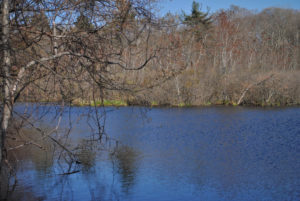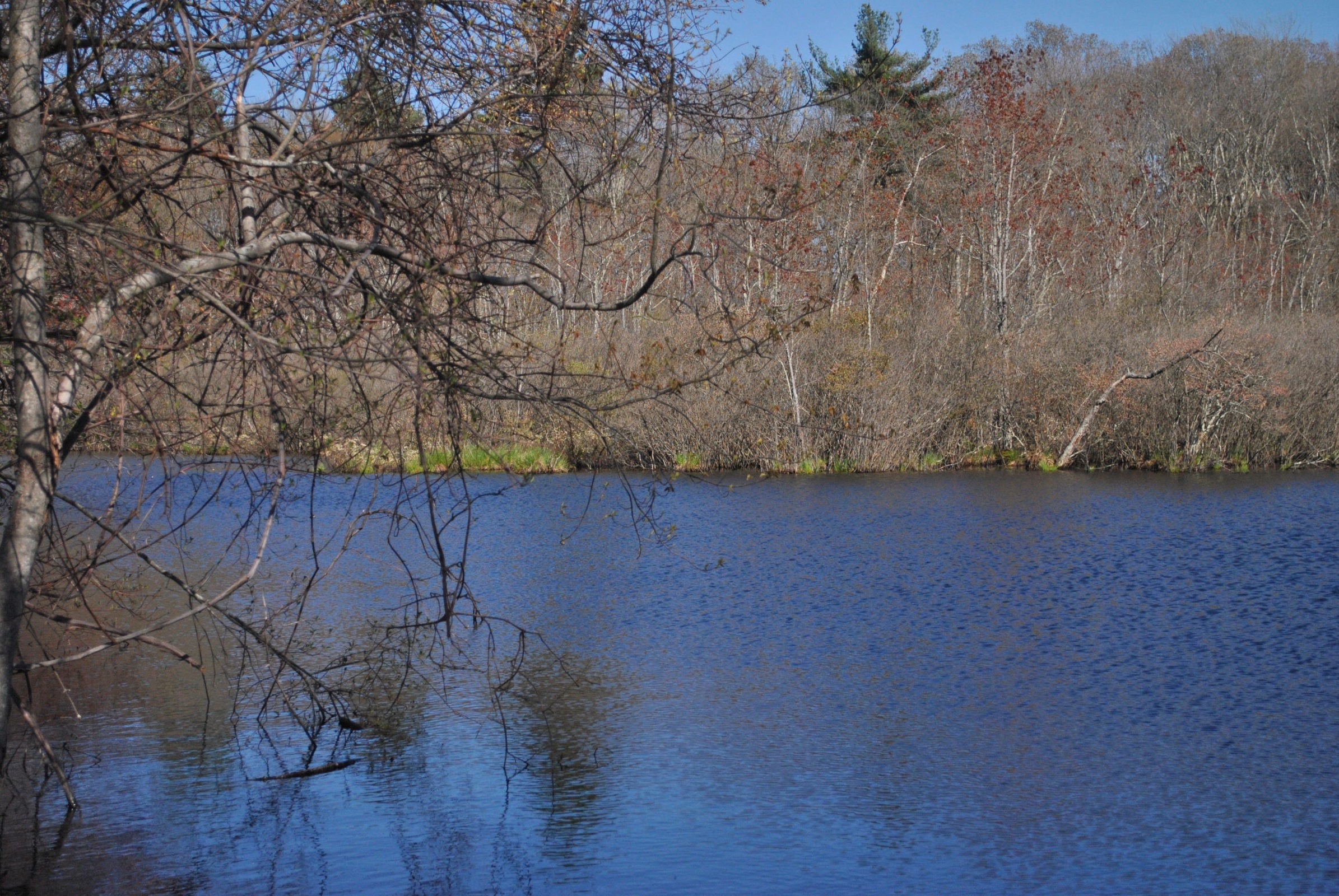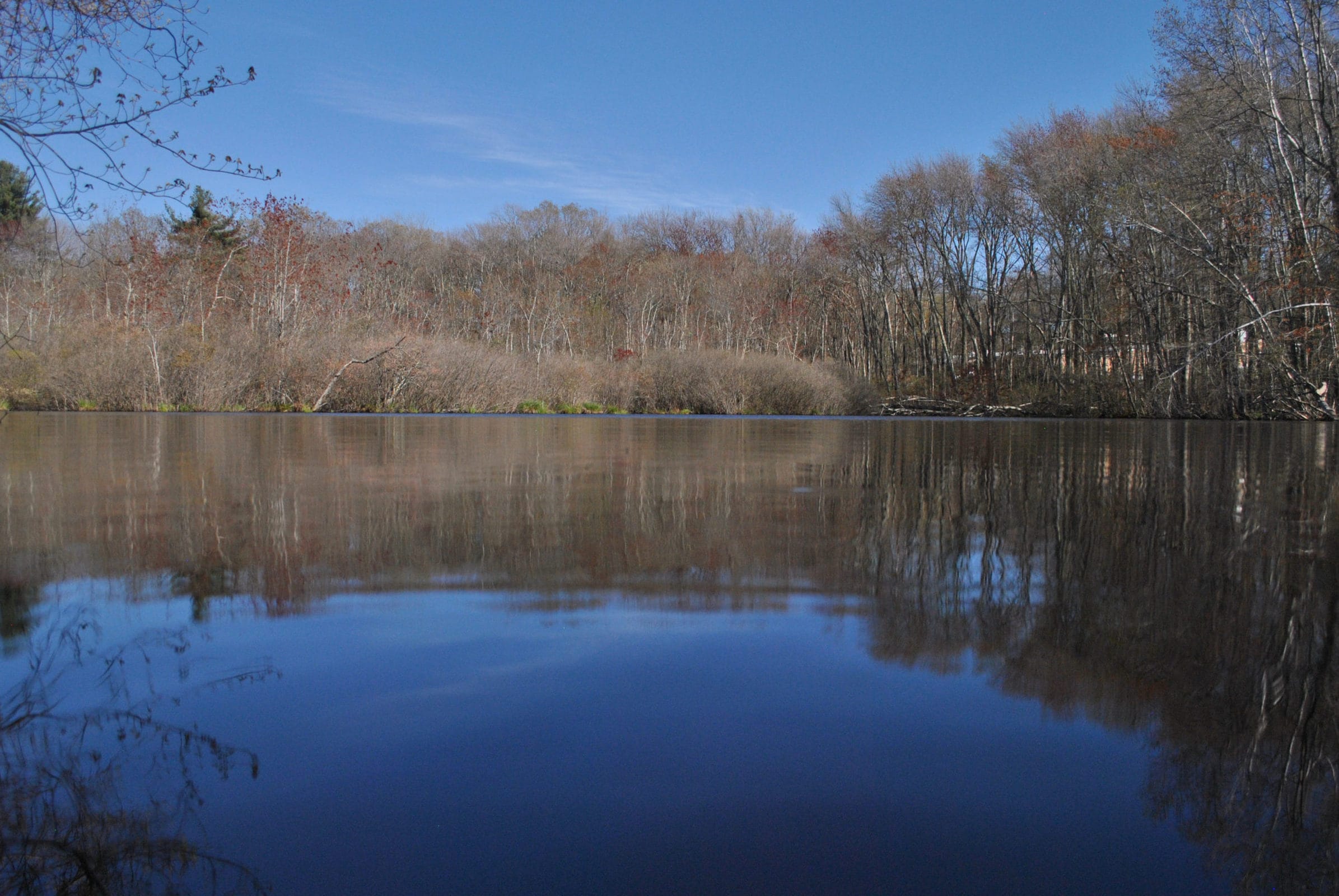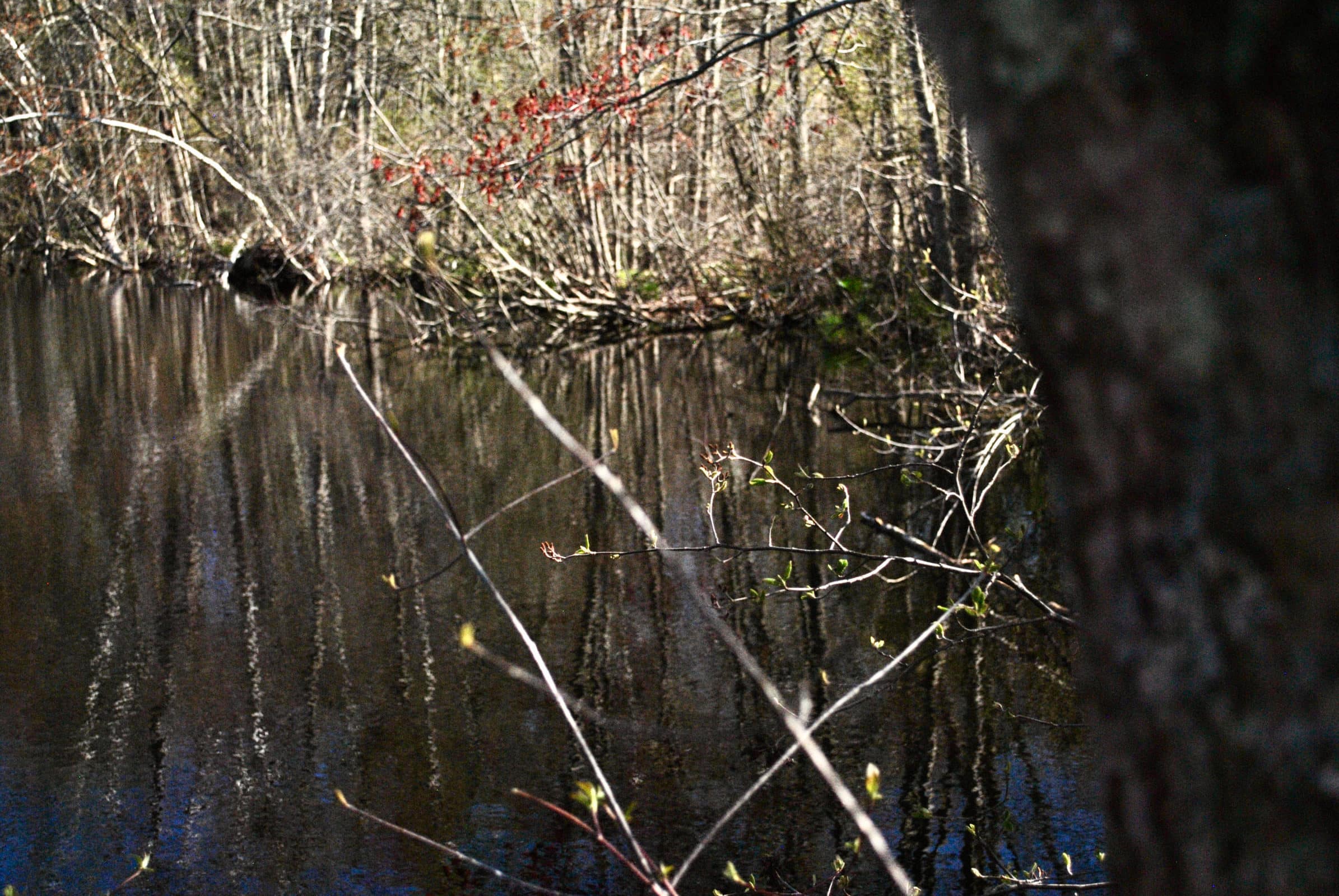
Sun shines on part of the South Cedar Swamp. Facing the annual increased threat of mosquito borne illnesses later this year, local officials are eyeing swamps and pockets of standing water as mosquito breeding grounds.
By Susan Gonsalves, Contributing Writer
WESTBOROUGH – Selectmen gave the go-ahead for state aerial mosquito spraying to proceed if necessary. But they also now plan to contact legislators and urge them to explore more natural, environmentally-friendly alternatives in the future.
Interim Public Health Director Ray Gauthier spoke about the town’s ability to “opt out” of aerial spraying in a presentation to the board April 27, noting that the state requires communities to create and fund an alternative to have in place in case of an outbreak of mosquito-borne illnesses.
Board of Health Chairman Alan Ehrlich said that these illnesses are genuine health concerns. For example, Eastern Equine Encephalitis (EEE) has a 50 percent mortality rate and can cause a host of neurological complications for its survivors.
Westborough has also had cases of West Nile Virus “from time to time.”
The mosquito-borne illnesses are a “real problem that need to be controlled one way or another,” Ehrlich said.
The presence of a local swamp, “an unending source of mosquitoes,” is another reason the Board of Health recommended participating in the state’s spraying program, Ehrlich said.
Gauthier said the state program is completely different from the ground spraying done by the Central Massachusetts Mosquito Control Project. He added that there is no coordination between the two measures.
Ehrlich said that residents individually can opt out of the ground spraying that is done on a regular schedule.
The aerial spraying, on the other hand, occurs when there is an outbreak like the surge of EEE cases two years ago. In that case, a large area—from Cape Cod to the New Hampshire border—was covered.
When that occurs, the state notifies the Mosquito Control Project, which stops its efforts for a week, Gauthier said.
Factors like rain and wind affect when aerial spraying can then proceed, he added.
Resident Louise Hetzler appeared before Selectmen to voice her strong opposition to the aerial spraying.
“Vote for the earth and against poisoning the land,” she told them, noting that the chemicals used also kill bees, butterflies, dragonflies, fish and more.
Both the ground and aerial spraying is wiping out pollinators, contributing to water pollution and endangering the earth, Hetzler said. “The insect apocalypse is happening now. Future generations are counting on us to do the right thing.”
She urged the town to explore using non-toxic garlic products instead.
Selectman Patrick Welch thanked the resident for her passion on behalf of the environment, saying that the bees in his own backyard hive “died off.” He recalled seeing hundreds of fireflies with his children in the past, and those too are gone.
Welch said he supported Hetzler’s message and agreed that the state needs more environmentally friendly techniques and chemicals. However, he pointed out that the town will still have to pay for spraying, whether it opts out or not.
Selectmen Chairman Allen Edinberg said that there should be an effort to study the feasibility of using different mechanisms and safer compounds to achieve the same goal.
Selectman Shelby Marshall recommended that a letter be written to local legislators asking them to look for “more organic, natural solutions” in the future.




















